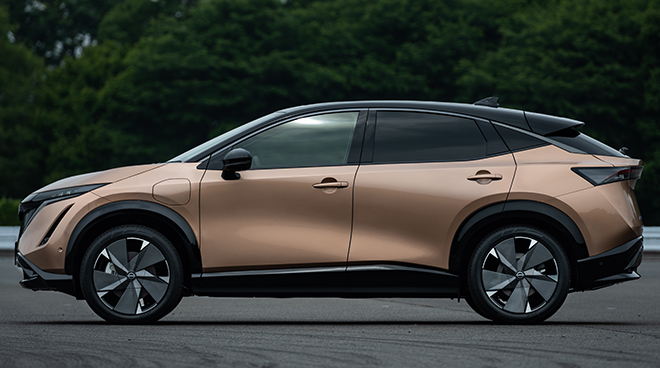Fight fans have been following the fortunes of the competing DC fast charging standards, CHAdeMO and CCS, for the past several years, but it’s been apparent for a while that the tide of the struggle has turned. When we reported on recently released figures from the DOE showing that the two standards account for similar numbers of charging stations here in the US, commenters soon pointed out that the numbers were misleading. In fact, there are only two EV models on sale in the US that still support CHAdeMO—the Nissan LEAF and the Mitsubishi Outlander PHEV, so the trend towards CCS is clear.
If the Korean automakers’ 2018 abandonment of CHAdeMO was Stalingrad, Nissan’s latest announcement was D-Day (younger readers, I’m making a reference to World War II here). The 2021 Nissan Ariya, which will supersede the LEAF, and is expected to launch in the US and Europe next year, will use the CCS standard.

As our colleague Tom Moloughney, writing in InsideEVs, notes, automakers have been defecting from CHAdeMO one by one. Kia switched to CCS in 2019 with its second-generation Soul EV, Hyundai went with CCS for the Kona Electric, and Honda became the first Japanese automaker to cross over when it released the Clarity Electric. Even Tesla has endorsed CCS, adding the Combo plug to Model 3s sold in European markets, and making a CCS adapter for Models S and X (but only in Europe, so far).
The eventual outcome of the war now seems plain, but the battles will drag on for a while. Nissan will continue to use CHAdeMO in Japan, where the standard dominates. Most new DC fast chargers in the US seem to be going in with both sets of connectors, though it’s unclear how long that trend will last. Moloughney also points out that the CHAdeMO Association recently introduced CHAdeMO 3.0, also known as Chaoji, which may become the new DC fast charging standard in China and/or Japan.
Source: Nissan, InsideEVs
